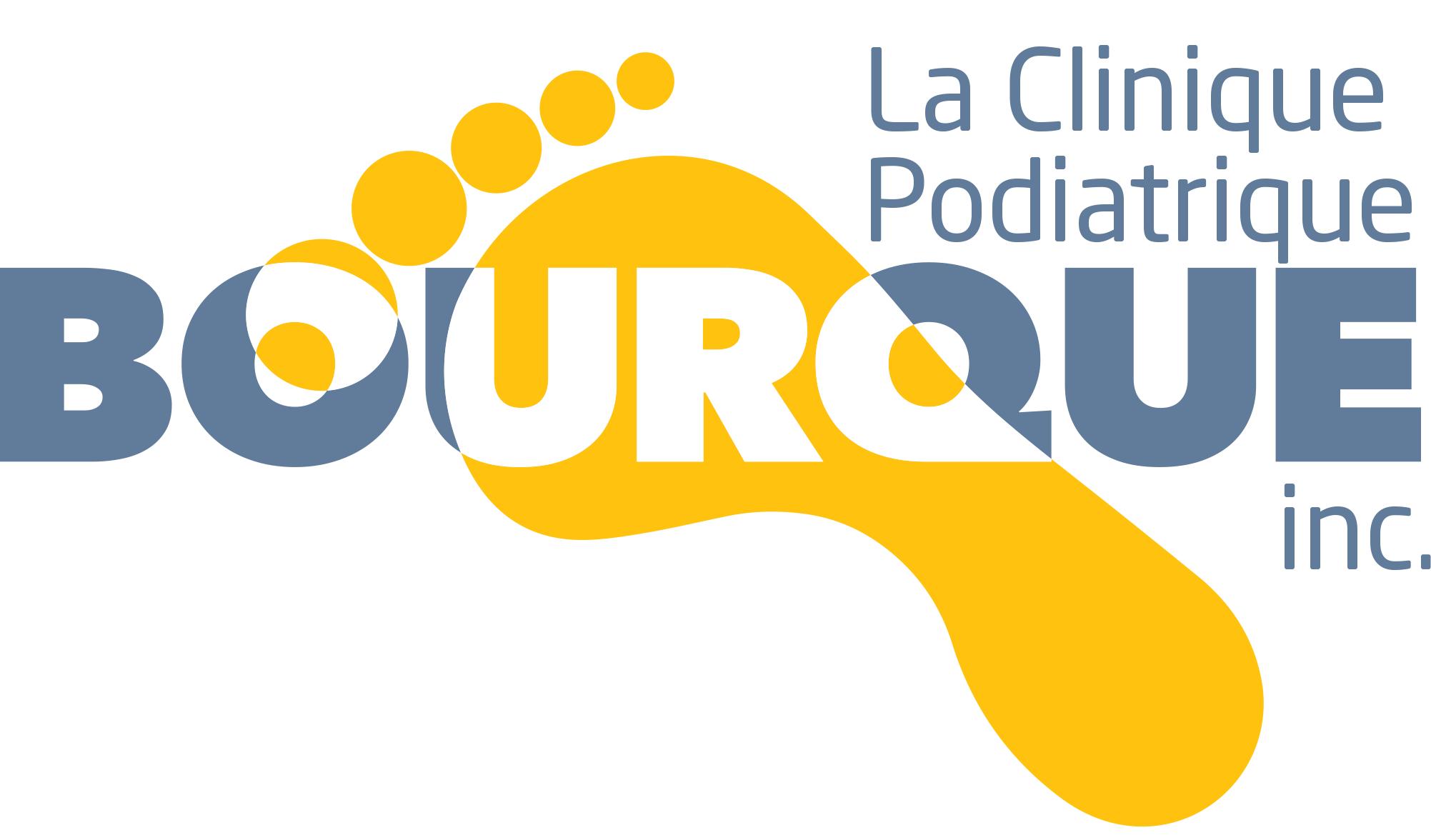FAQ
Visit our Frequently Asked Questions section to find quick answers to our most frequently asked questions.
With the goal of offering the best service possible for all our patients and in order to accommodate working hours, both of our clinics are open weekday nights, at latest until 9pm (Boisbriand). To learn more about our opening hours for both Bourque Podiatric Clinics, please visit our contact page.
For a podiatric consultation, no medical referral is needed. Any appointment at our clinics can be scheduled directly with us. To book an appointment, please call us at 450-435-7433 (Boisbriand) or at 514-733-8558 (Montreal), or by completing the following questionnaire and one of the members of our team will contact you shortly.
The purpose of a visit with a podiatrist varies from one person to another. Any abnormality localized in the feet and any pain radiating in the lower limb starting from the foot and going all the way to the lower back (ankles, knees, hips or lower back) are valid reasons to visit a podiatrist. A gait (walking) evaluation, also known as a biomechanical evaluation can be performed if foot orthotics are prescribed to a patient, in prevention or as a treatment. Any dermatological changes (on the skin and/or nails), treatment of ingrown toenails, plantar warts, traumatic injuries (twisted ankles, fractures, ect.), foot infections, and the prescription of certain therapeutic agents are all services offered at our clinics. Your feet don’t have to suffer; they are the basis of your whole posture. For more information, please refer to our services.
In Quebec, the university program of a podiatrist is comparable to that of a dentist or veterinarian. The diploma in podiatric medicine is a first cycle doctorate obtained after the completion of a four-year university program at the University of Quebec in Trois-Rivières. The program involves general training on human health, a training specializing in podiatric medicine, and a final year spent in internships in different settings; foot surgery in private clinics, wound care in hospitals, patient care in private clinics, and patient care at the clinic ran by the university in Trois-Rivières. A podiatrist has all the necessary training and information to determine, diagnose, and treat any pathologies of the foot that are not systemic diseases, by full clinical examination and with the need of medical imaging, if necessary. They have extensive knowledge on the different issues that could occur in the foot, whether they’re at the level of the bones, dermatological (skin), vascular (circulation), neurological (nerves) and/or musculoskeletal (muscles, tendons and ligaments). A podiatrist is the only professional in foot health. A podiatrist is for your feet much like how a dentist is for your teeth!
Depending on the condition of the patient, a podiatrist can administer and prescribe certain medications, provide injections of local anesthetics and/or cortisone, prescribe, fabricate, or modify orthotics, utilize physical therapy/manipulations, and many more. When required, and if the podiatrist has his radiology license, the podiatrist can prescribe and analyze medical imaging to diagnose and treat certain conditions localized in the feet and ankles.
A podiatrist has a wider range of knowledge and field of practice because of the education they receive in university, as a doctorate degree in podiatric medicine. An orthotist has a college degree in the making/fabrication of orthotics and prosthetics for the whole body. Therefore, a podiatrist is specialized in feet and secondary issues in the lower limbs. Podiatrists have a specific field of expertise which allows them to perform a complete evaluation (clinical examinations, medical imaging, vascular analysis, dermatology, and neurology) in the goal of diagnosing and establishing the best treatment plan for their patients. Custom-made foot orthotics are prescribed according to a complete biomechanical exam, to precise measurements and to specific foot molds and by taking into consideration the associated pathology / diagnosis. In opposition, the insoles you find at the pharmacy are premade and not custom-made. They are more of a basic arch support than a functional and/or corrective device. The foot orthotics fabricated by the orthotist require the prescription of a podiatrist or a family doctor since they cannot evaluate the patient themselves to make a medical diagnosis, which is required for an adequate foot orthotics prescription as they are custom-made.
We accept payments with debit cards, credit cards, cash, and checks. Howerver, American Express credit cards are not accepted in our clinics.
Absolutely. Keep in mind that your feet are at the basis of your posture and directly influence the rest of your body. Any deviation at the level of the feet could create abnormal wear in the joints and/or discomfort in the feet, ankles, legs, knees, hips, and lower back. A complete evaluation of your gait can be realized at your podiatrists’ in order to determine the potential source of your problem.
